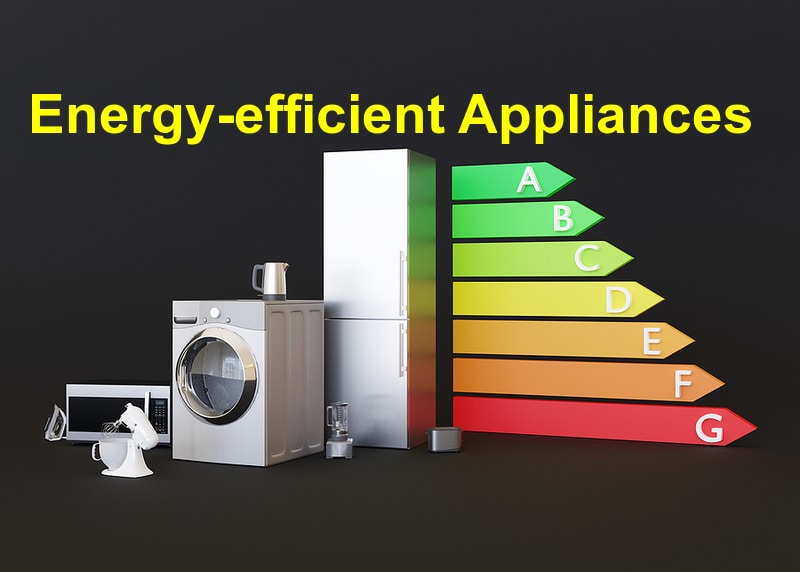Energy-efficient appliances are devices or machines that use less energy than traditional appliances while performing the same or similar functions. Energy Star-certified refrigerators, LED light bulbs, and low-flow showerheads are examples of energy-efficient appliances. These appliances can help reduce energy consumption and lower energy costs for consumers. Using energy-efficient appliances and materials can pack a gazillion benefits to both homeowners and the environment. Some of the key benefits include:
- Lower energy bills: Energy-efficient appliances and materials use less energy, which can lead to significant savings on your energy bills over time. And while it may not seem like a lot in the short term, it can pile up to a pretty penny over time. Moreover, as much as energy-efficient devices can appear expensive at first, the savings that you are bound to make over years or decades of use will easily offset the initial buying price incurred.
- Reduced environmental impact: Energy-efficient appliances and materials use less energy, which means fewer greenhouse gas emissions and a smaller carbon footprint. This can go a long way in keeping our planet cooler and global warming in check.
- Increased comfort: Energy-efficient appliances and materials can help improve your home’s comfort by reducing drafts, maintaining consistent temperatures, and reducing noise levels.
- Longer lifespan: Energy-efficient appliances and materials are often designed to last longer, saving you money in the long run.
- Government incentives: Many governments offer incentives such as tax credits or rebates to encourage homeowners to invest in energy-efficient appliances and materials.
- Increased property value: Homes with energy-efficient appliances and materials can be more attractive to potential buyers and may command a higher price on the market.
By using energy-efficient appliances and materials, homeowners can save money, reduce their environmental impact, and improve the comfort and value of their homes. It’s also important to note that the use of energy-efficient appliances and materials is becoming increasingly important as climate change is becoming a global concern and countries are looking for ways to reduce their carbon footprint.
References: EPA, AstralenergyLLC




